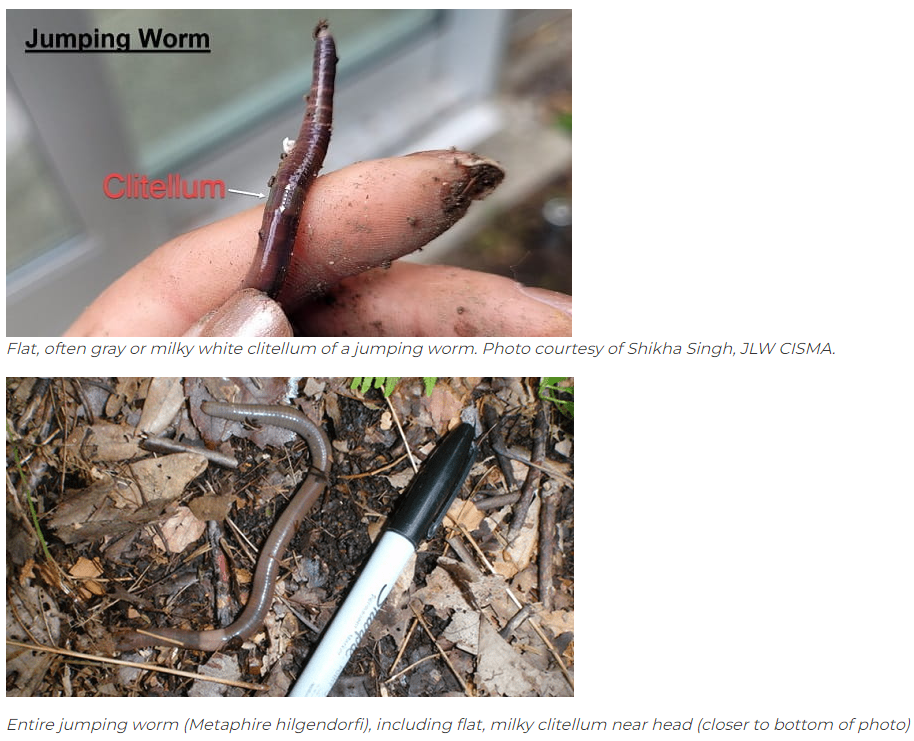Worms and Soil Health
There are over 9,000 species of worms and how each type impacts soil health and the environment varies greatly. Only 7 species of earthworms are considered suitable for vermicomposting. Eisenia fetida (commonly called Red Wigglers) is the species used at Bowers Farm and also by 80-90% of commercial worm farmers. The vermicast (worm poop) that they produce is hugely beneficial for plants and the soil food web. Like many earthworms, Eisenia fetida is a nonnative species. However, they are not a concern because they die when exposed to freezing temperatures. Additionally, unlike other species of earthworms, Eisenia fetida does not invade and harm the ecosystem.
In Michigan, we unfortunately have invasive earthworms called Jumping Worms. These earthworm species are damaging to soil health and were first detected in Oakland County in 2008. Jumping worms may cause imbalances in soil nutrition as well as sequester toxic metals from the soil which can accumulate in predators who eat them. Additionally, jumping worm activity can cause changes in the physical characteristics of soil, contributing to erosion and changes in water permeability. Jumping worms are similar in appearance to earthworms (also known as nightcrawlers) but can be distinguished by the jumping worm’s thrashing movements.
Not all earthworms are the same, and vermicomposting with Red Wigglers offers tremendous benefits to the planet and health of our soil.



